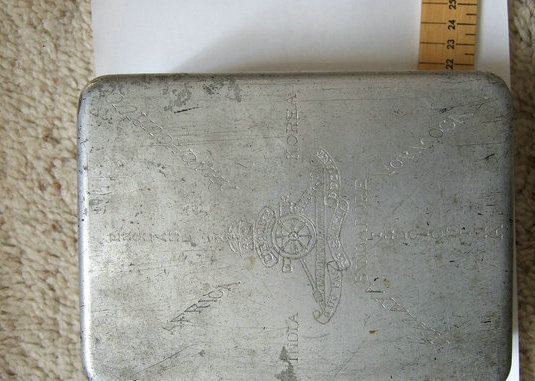 |
|
The engraved mess tin Gunner Joy made as a tribute to his murdered colleagues.[Photo/China Daily]
|
Reviled by Japanese occupation troops, Chinese civilians risked death to pass what little food they could spare to the starving prisoners inside the camps, according to official Allied records based on interviews immediately after liberation.
Gunner Joy told his son of acts of friendship from Chinese civilians outside the camp, who would smuggle food and medicines through the wire.
During the early part of his captivity in Malaya, he and his colleagues would go on work parties, and were able to slip into a nearby kampong, or village, where Chinese women hid them in a temple and brought them food. Several times they were able to smuggle food back to the places they were being held captive in.
The Japanese treated their captives appallingly by any standards.
The militarists who gained control of Japanese society before and during WWII doctored the so-called bushido, or warrior code, to suit their view, which dictated that soldiers who surrendered were less than human. This view extended to Chinese civilians under their control.
After liberation, many prisoners sought out the Chinese who had helped them, and stayed in touch until it was no longer possible to do so.
Beatings, executions, and solitary confinement comprised the everyday life of prisoners in the camps, whose rations issued by the Japanese barely kept them alive, and they were denied all but the most basic form of medical treatment.

